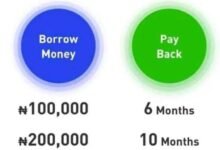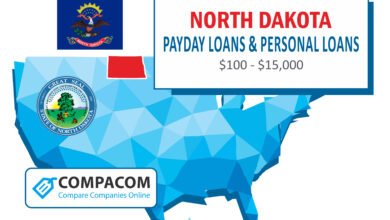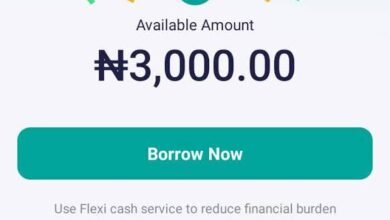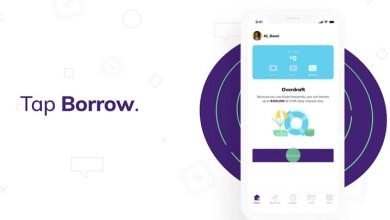Complete List in Of Ongoing Nigeria Federal Government FGN And CBN Loans and Grants For 2023
List of FGN loan and grants for small business in Nigeria
Development financing either through loan or grant is one of the requirements for sustainable economic growth in any economy. The supply of finance to various sectors of the economy will promote the growth of the economy in a holistic manner and this will make development, welfare improvement proceed at a faster rate.

Therefore, there are several initiatives put forth by the Federal Government of Nigeria (FGN) to help provide funds and assistance to business owners in order to foster economic growth indirectly or directly.
There shall be a complete list of Ongoing Nigeria Federal Government (FGN) and CBN loans and Grants for 2023 and a step by step process on how to apply for them.
What Are The Nigeria Federal Government FGN And CBN Loans And Grants?
The Federal Government Loans and grants provide capital for those who may not qualify for a loan from a private lender.
The government doesn’t always lend money directly. In some cases, it guarantees loans made by banks and finance companies.
The most common government loans are student loans, housing loans, and business loans and grants through various types of fundings.
Most importantly, Nigeria Federal government loans tend to have lower interest rates, and they may have other perks such as flexible income-based repayment plans, and because government loans often have more attractive terms than private loans, demand for them can be high and selection criteria can be tough.
FGN loan programs can help:
- Improve the overall national economy and quality of life of its citizens
- Encourage innovation and entrepreneurship
What Are CBN Loans?
It is no longer new that the CBN has over the years been directly or indirectly in the financing of growth enhancing programmes and projects of the federal government.
Through the CBN loans, social responsibility, acceleration of growth, and development of the Nigerian economy has been achieved to a great extent.
In this regard, the bank intervention initiative encompasses real sector programmes particularly agriculture, small and medium enterprises, infrastructure and youth empowerment, and notable, amongst them are the:
- Commercial agriculture credit scheme
- Real sector support facility
- SME credit guarantee scheme
- SME restructuring and refinancing funds
- Nigeria incentive-based risk sharing system for agricultural lending
- Power and airline intervention funds
Complete List of Ongoing Nigeria Federal Government FGN And CBN Loans And Grants For 2023
There are several open and ongoing Nigeria Federal Government FGN And CBN Loans and Grants which will be discussed below for interested candidates to apply for.
1. Agricultural Credit Support Scheme (ACSS)
The ACSS is a program of the Federal Government and the Central Bank of Nigeria which was introduced to finance and enable farmers explore potentials of Nigeria’s agricultural sector, reduce inflation, lower the cost of agricultural production, generate income for export, increase Nigeria’s foreign earnings as well as diversify its revenue base.
The ACSS which is currently ongoing this 2023 for interested applicants to go apply for has a fund of N50.0 billion and in order to access loans, applicants (practicing farmers and agro-allied entrepreneurs with means) are encouraged to approach their banks for loan through the respective state chapters of farmers associations and State Implementation Committees. However, large scale farmers are allowed under the scheme to apply directly to the banks in accordance with the guidelines.
Overview of the ACSS
- You must be a farmer.
- The funds will be disbursed to farmers and agro-allied entrepreneurs at a single-digit interest rate of 8.0 percent
- Applicants are expected to provide collateral if loan amount is above N20,000.
- The collateral must be in a tangible form or in the form of 25% cash security of the intended loan amount in the form of savings.
- Banks will grant loans to qualified applicants at 14.0 percent interest rate.
- Applicants who pay back their facilities on schedule are to enjoy a rebate of 6.0 per cent, thus reducing the effective rate of interest to be paid by farmers to 8.0 per cent.
NIRSAL is a microfinance company which is a subsidiary of the Nigeria Incentive-Based Risk Sharing System for Agricultural Lending (otherwise known as NMFB).
It is licensed by the CBN to offer loans with a mandate to facilitate the free flow of affordable finance and investments to the agricultural sector.
It houses several loan program which are below for interested candidates to apply for
A. Anchor Borrowers’ Program:
The aim of the Programme is to provide loans (in kind and cash) to smallholder farmers to boost agricultural production, create jobs, and reduce food import bills towards the conservation of foreign reserves. In essence it ensures the protection of smallholder farmers.
Take note that the minimum amount is N50,000 while the maximum amount is subject to the borrower’s financial capacity.
B. The Agric, Small Medium Enterprise Scheme (AGSMEIS)
The Agri-Business/Small and Medium Enterprise Investment Scheme (AGSMEIS) is an initiative to support the Federal Government’s efforts and policy measures for the promotion of agricultural businesses and small/medium enterprises (SMEs) for sustainable economic development and employment generation
How to apply for this loan program:
- Attend a compulsory training with a NIRSAL MFB certified Entrepreneurship Development Institute (EDI) or you can apply as just an applicant.
- Create an account by clicking on ‘Apply now’ as an applicant, validate your BVN and select a NIRSAL MFB certified Entrepreneurship Development Institute (EDI).
- Loans are paid into the account of beneficiaries. Unqualified candidates are given feedback.
3. FGN GEEP Loan
Government Enterprise and Empowerment Programme (GEEP) is a loan by the federal government, not a grant or aid. It is made available to small and medium-sized businesses to help any Nigerian who needs capital to start their business, scale up their business, or increase their marketing budget.
Applicants or candidates can range from traders, artisans, enterprising youths, farmers, agricultural workers, and other categories of micro, small and medium enterprises (MSMEs).
The GEEP comprises loans between 50,000 naira and 300,000 thousand naira which are given to women under the , then farmers under the and enterprising youths under the programme.
The registration fee is free so ensure to make use of the opportunity now as it is currently ongoing to apply for a loan.
Criteria to apply:
- The only requirement needed for the GEEP Loan is the procession of national identification numbers (NIN).
- No need for BVN or bank details
- Hence all interested applicants can register for the GEEP loan scheme by appearing physically at any of the Geep desk offices located in all 774 LGAs nationwide to register for a loan.
4. Micro, Small and Medium Enterprises Development Fund (MSMEDF)
MSMEDF was launched by the CBN to establish recognition of the signifyicant contributions of the Micro, Small and Medium Enterprises (MSME) sub-sector to the economy and the existing huge financing gap.
The eligible activities to be financed include agricultural value chain, services, cottage industries, artisans, trade and commerce and any income generating business as may be prescribed by the CBN from time to time.
The broad objective of the Fund is to channel low interest funds to the MSME sub-sector of the Nigerian economy through PFIs.
Therefore, if you find yourself in any of the sectors mentioned then give it a try and apply in order to secure a grant and fund your business now.
5. NEXIM Loans
NEXIM was established in 1991 as an Export Credit Agency (ECA) with a share capital of N50, 000,000,000 (Fifty Billion Naira) held equally by the Federal Ministry of Finance Incorporated and the Central Bank of Nigeria.
It has several funding and lending programmes which includes;
– Direct Lending Facility
Under the Direct Lending Facility, NEXIM would grant short, medium and long term fixed or floating rate loans, to exporters directly and/or under co-financing/syndication arrangement with eligible banks.
Direct loans are available to assist exporters complete their export sales, by providing working capital and/or facilities and funds for procurement of equipment. Services include, but are not limited to consultancy, tourism, oil and gas services provided by Nigerians. Loans are granted directly to a Nigerian exporter in both local and foreign currencies up to 80% of the total project cost
Nigerian Creative Arts & Entertainment Industry Loans
The Creative arts & Entertainment Industry Facility introduced by the Nigerian Export – Import Bank is designed to achieve harnessing Nigerian cultural diversity and talents in a structured manner to ensure the orderly growth and development.
Any Company in Nigeria can benefit from the facility provided that it is legally registered / incorporated in Nigeria,
It operates in the entertainment and creative industry,
It is not owned by government (federal, State or local),
It is not an oligarch business interest that may interfere with content policy for its own interests
- a) Industry Value Chains
Funding under this facility covers all segments of the creative arts / entertainment industry and across the value chains of the following activities;
- Music (Production & Distribution)
- Film (Production, Distribution, Exhibition)
- Television (Production, Distribution, Exhibition)
- Radio (Production & Distribution)
- Fashion (Production, Distribution, Exhibition)
- Distribution / Exhibition Infrastructure and Platforms
- Development of production platforms and facilities
- Acquisition of hi-tech production equipment and ancillary facilities
– Rediscounting & Refinancing Facility
This facility is a type of loan which is available to assist commercial and merchant banks to provide short-term finance in support of exports, directly or indirectly influence the cost of credit to the export sector; enhance its competitiveness and to encourage banks to finance the procurement of non oil export goods, raw materials, and processing.
This facility is made available in local currency to exporters through their bankers and is available for a maximum tenor of one year, at a concessionary rate determined periodically by NEXIM.
6. Bank of Industry (BOI) loan
The Bank of Industry Limited (BOI) is Nigeria’s oldest, largest and most successful development financing institution (DFI) whose primary mandate is providing long-term low-interest financing to the industrial sectors of the Nigerian economy.
It exists to facilitate the transformation of Nigeria’s industrial sector by providing financial and advisory support for the establishment of large, medium and small projects/ enterprises, and the expansion, diversification, rehabilitation and modernisation of existing enterprises.
There are several loans that BOI offers such as
- CBN Backward integration fund
- CBN industrial fund
- CBN textile intervention funds
- CBN textile revival implementation fund
- Graduate Entrepreneur Fund (GEF)
- The Fintech Digital Lending
- Artisanal Miners Intervention Fund
- The Fintech/Digital Lending Product leverages
FAQs
1. Can I Apply For A Loan from CBN Directly?
The CBN does not usually fund individuals. Accordingly, you will need to have a registered business or company — with the Corporate Affairs Commission (CAC). Additionally, as the CBN does not lend directly, you will need to be a customer of one of the eligible financial institutions i.e. PFIs.
Eligible PFIs include all microfinance banks, non-governmental organizations-microfinance Institutions (NGO-MFIs), financial cooperatives, finance companies, development finance institutions (Bank of Agriculture and Bank of Industry) and deposit money banks (commercial banks).
2. How can I apply for a CBN or FGN loan?
If you’re among those who wish to apply for a CBN loan, you are encouraged to visit an eligible PFI bank. Once you arrive, indicate your interest in applying for a CBN loan.
3. How to get funds issued?
- Once you’ve applied and the Participating financial institutions (PFIs) receive applications, there will be due conduct of diligence on applications based on business and credit considerations.
- Thereafter, there will be an approval by PFI’s credit committee, the lending bank will forward eligible private sector companies to CBN.
- CBN will screen and finance eligible applicants in 100 days and roll over every 100 days.
- The Bank will conduct an internal review of applications to ensure compliance with stipulated requirements.
- Then, the CBN releases the approved sum to PFIs for onward disbursement to selected private sector companies.
4. What are the available grants in Nigeria
Grants refer to a funding opportunity and obtaining a grant is one of the most effective methods to fund a business or an idea in Nigeria as it allows you to focus on developing and growing your business.
There are several grants such as;
- Tony Elumelu Foundation (TEF) Entrepreneurship Programme
The Tony Elumelu Foundation (TEF) is a programme that provides training, mentorship, and funding to selected entrepreneurs from across Africa, new start-ups, and existing young businesses operating in any sector.
- Bank of Industry (BOI)
The Bank of Industry (BOI) main aim is to give long-term funding to the Nigeria Economy and give credit to small and medium-sized enterprises (SMEs) and other large businesses. The scheme provides colorful kinds of subventions for all kinds of entrepreneurs.
5. What are the Documents required when applying for a loan?
- Applying for a Federal Government Loan or Grant, you must be a Nigerian.
- Identity proof / address proof (copy of passport/voter ID card/driving license/Aadhaar Card)
- Bank statement of previous 3 months (Passbook of previous 6 months)
Conclusion On The Complete List of Ongoing Nigeria Federal Government FGN And CBN Loans And Grants For 2023.
With all the above listed Nigeria Federal Government FGN And CBN Loans and Grants which are currently ongoing for 2023, candidates can go ahead to make use of the application link to apply for funding in their respective businesses.
Also, if you’re thinking about starting or growing a small business, a government loan can be a great option. These loans come with a number of benefits that can be extremely helpful for your business. So don’t hesitate to apply for the FGN government Loans and Grants for your business today.









